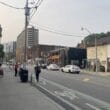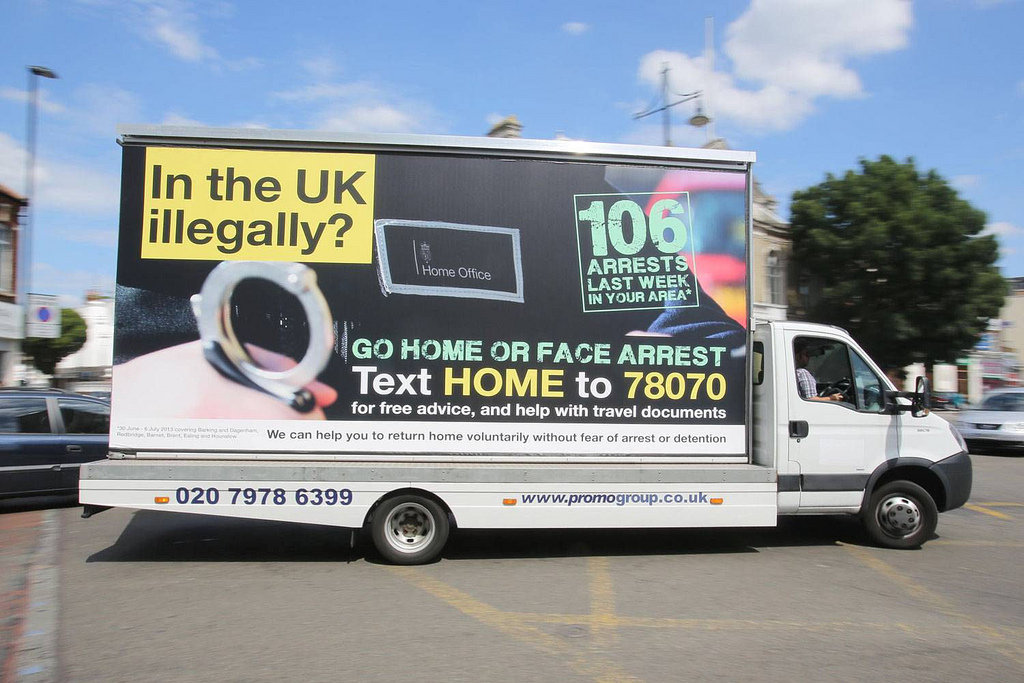“I just ran and ran,” he said. He can’t remember collapsing in the road.
But when he came to, he had been found by locals in the Scottish town near where he had been held hostage on a cannabis farm for about a month. They had called an ambulance.
P is a human trafficking victim from Vietnam whose identify we’ve agreed to conceal to ensure his safety. Like him, many are very young when they are trafficked, often told that they are being offered a better life overseas. “I was 14,” he said. “I had a normal life in Vietnam, then my dad left and I lived with my mum. But she died. I was on my own. So I had no choice.”
First he was taken to Taiwan to work long hours in a restaurant where he was beaten for just breaking a plate. “He was a very angry boss. I worked for two years there. I stayed in a house and I gave them the money I earned for food. I wanted to run away but I didn’t know any Chinese. I didn’t know where I could go.”
In 2016 his boss offered to take him to the UK to work in another restaurant. “When I came here it was not a restaurant,” he explained. “He took me to a house where they were growing cannabis. I knew it was wrong.”
The house was “a normal family house” but with the furniture stripped out and the windows covered. The cannabis plants, which he had to water and care for, grew in one room and he slept in the next, on the hard floor with blankets. He was guarded day and night and not allowed to leave. The smell of cannabis was overwhelming.
But one day after living there a month, he saw a chance to escape and ran for his life. “I was very ill,” he said. “I had pains all over my body. I remember when the doctor checked me and I coughed up blood. I must have looked very strange and I was crying.”
He was given housing and reassurance but it was tough. “For a long time after I escaped I was very scared. For the first four or five months I didn’t go out at all. I thought the traffickers would find me.”
He was too scared, too, to tell anyone he had been cultivating cannabis, worried that he would be criminalised. Yet if his need for protection was not properly understood, getting leave to remain in the UK when he reached adulthood was less certain. At night he worried that he would be sent back and killed by traffickers in Vietnam.
Hostile environment
His case is one of hundreds in towns, cities and rural parts of the country. Police Scotland figures show a rise in human trafficking cases with 213 cases last year, up 42 per cent from 2016. They included victims of sex trafficking and sham marriages, as well as people forced to work in cannabis cultivation “farms”, or in bonded labour in nail bars, car washes and restaurants.
But despite Scottish legislation that should protect people, some say that even those who are recognised as trafficking survivors are being refused leave under the UK’s hostile immigration system.
A leading human rights lawyer has called for Scotland to be given the power to close the “protection gap” faced by human trafficking victims, which means they can be returned to countries where they are at risk. It has been claimed this could be unlawful.
Speaking ahead of Anti-Slavery day on 18 October 2018, Helena Kennedy QC – who in 2010 chaired an Equality and Human Rights Commission Scotland (EHRC) investigation into human trafficking – said the Scottish Government should be allowed to make decisions on how to treat victims of human trafficking.
Scotland introduced ground-breaking legislation in 2015 that allows a range of support for victims including 90 recovery days – double the time offered in the rest of the UK.
However it is the Home Office that makes the decision on whether to recognise someone as a victim of human trafficking through the national referral mechanism, as well as whether to grant protective leave to remain.
Kennedy said that there had been “inspiring progress” in Scotland. But she claimed Scottish trafficking victims were falling through a protection gap, which could see them returned to countries where they were at risk of re-trafficking.
Figures from research and parliamentary answers suggest that just 10 per cent of confirmed trafficking survivors are granted discretionary leave. Others may be granted a year’s leave under an European Union directive that will not be enforceable after Brexit, leaving many without that protective mechanism. Some may claim asylum if their case fits the terms of the refugee convention.
“Scotland has very good trafficking policy but that is trumped by immigration policy,” said Kennedy. “People are being recognised as (human trafficking) survivors but because of the presence of the hostile environment they are not getting leave.”
She claimed those making life and death decisions on whether to provide leave for trafficking survivors were not adequately equipped to do so.
“I would call on Scottish ministers to press the UK government to be able to decide on how to deal trafficking survivors, and allow them to stay here until they can recover and are out of danger,” she added. “We have to provide very real protection and support.”
Her call was backed by Glasgow Green councillor, Kim Long, who earlier this year campaigned on behalf of her constituent, Duc Kien Nguyen, a trafficking victim from Vietnam who was detained and faced deportation.
Nguyen had been held hostage in a cannabis farm in a room with electric currents around the window, and forced to grow cannabis. But following a police raid he was mistakenly jailed for drug offences. He has since applied for asylum but is still at risk of further detention.
“When the police raided the farm, it was Duc who ended up in jail for drugs offences,” Long said. “Now this criminal record means he faces automatic deportation – even though he was forced to commit the crime. We – his whole community – had to fight very hard this summer to prevent Duc being put on a plane and sent back into extreme danger, and we might have to fight it all over again.”
She added: “Duc is a survivor of trafficking. He reported it, he sought asylum, he did everything right – but he could still be put on a plane. He could be detained, or made intentionally homeless. It’s monumentally unfair. People who’ve been through trafficking deserve justice, and instead the UK government is doubling down on their persecution.
“We need to have automatic protection from deportation for people who’ve been trafficked, along with legal support to fight their case, safe accommodation, and well-funded mental health services to support recovery from the trauma they’ve endured.”
Leave to remain
Meanwhile P’s experience will take time to recover from. He is now receiving support from the Scottish Guardianship Service, which was set up in 2010 to work with young people arriving in Scotland alone having been separated from their parents. The majority are applying for asylum and about 40 per cent have been trafficked.
Young people accessing the service come from countries all over the world – China, Iran, Nigeria – but Vietnam is the single biggest country of origin and almost all those young people have trafficking indicators. Last year alone the service worked with 35 young people from Vietnam.
As P built up trust with his guardian, who had expertise in working with young people like him, he made the decision to confide in her about being held in the cannabis farm. “Nobody knew. But my guardian explained to me that I’d not done anything wrong. I started to trust her.”
The truth of his situation was now understood, and his need for protection in the UK became clear. The guardian was able to help him put forward his case with the Home Office and in October – after an 18 month wait – he was granted refugee status, giving him leave to remain.
“I was so happy,” he said. “I was worried that if I was sent back they would kill me. I had a long time where I was very stressed.”
A night he can sleep again, and his guardian continues to offer help and support. “I still think about it a lot. But I am starting to think about the future too. I just want to keep studying English and get a job. I have people around me now who care about me.”
Catriona MacSween, service manager for Aberlour Childcare Trust, which run the Scottish Guardianship Service in partnership with Scottish Refugee Council, is delighted with the outcome of his case. But she is also frustrated by how much suffering is caused by UK bureaucracy.
“There is more of a focus on trafficking in Scotland now and it’s positive to see the Scottish Government set out their approach and commitment to tackling human trafficking,” she said.
Children suffer as reports of human trafficking in Scotland rise
Yet MacSween claimed lengthy delays on Home Office decisions about whether someone would be recognised as a trafficking victims were “outrageous”. One young person in the service has been waiting for three years, leaving them living in fear of return.
Another young woman, who has good friends and is getting A’s in her school work admitted the uncertainty meant she felt unable to enjoy anything. She has watched the mental health of several children deteriorate while waiting.
“This process is not child centred and it needs overhauled as it is not fit for purpose,” MacSween argued. “Scotland could take the brave step to take control of the trafficking process, make this system work for children in Scotland.”
She added: “By embedding this in established child protection systems, making this a multi-agency decision about whether or not someone has been trafficked would achieve the same result but retain a strong safeguarding focus, with the child at the centre. The decision-making timescales would be drastically reduced.”
Detective Superintendent Stuart Houston, who heads up Police Scotland’s National Human Trafficking Unit, said the rise in numbers was due in part to a rise in public awareness as well as growing trust in victims that they could confide and get support from police.
“Public awareness on this is a huge issue,” he added. “It’s about people realising something is just not right. This is something that has a huge impact on victims. The primary object is to protect the individual and keep them safe. If we can, we will then look to prosecute.”
High profile police operations in recent years have been aided by police officer seconded from Romania, Slovakia and Poland. They include cases of commercial sexual exploitation and sham marriages.
A spokeswoman for the Scottish Government said: “It is important that trafficking victims are made to feel safe in our country and supported to rebuild their lives. That is why we want powers to establish a less restrictive immigration system that enables us to take the right approach to our humanitarian responsibilities.”
A Home Office spokeswoman said: “All applications are looked at on a case-by-case basis, with caseworkers giving careful consideration to the circumstances of each individual. No one who is found to be at risk of persecution or serious harm in their country of origin will be returned there.”














